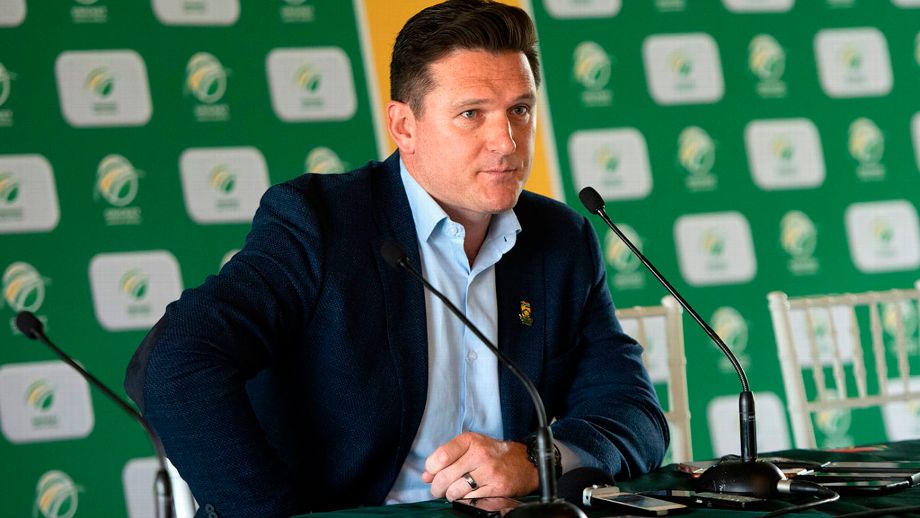It’s time to put an end to the binary thought on the Smith/Tsolekile saga, writes DANIEL GALLAN.
Let’s attempt to chew gum and walk at the same time. A seemingly challenging task for most fans of South African cricket if social media is anything to go by. Half would land up choking on their own saliva. The rest would likely stumble off a cliff.
The dichotomous thinking of supporters has long plagued the discourse concerning the games we play in Mzansi. This is nothing new. But in the absence of actual games, binary thought is tearing at the fabric of the structures that hold our ecosystem in place.
Now is the time to put an end to this.
Let us start with Graeme Smith. Statistically the greatest captain in Test cricket and one of the most successful opening batters of all time, his legacy on the field is secure. While only zealots would argue against this, it is worth emphasising the colossal stature of Smith and why it would be churlish to cast him aside from his role as director of cricket.
I have no doubt that he has the best interests of South African cricket at heart. At 22 years old he was has handed the reins of the men’s national team while the embers of the Hansie Cronje fiasco were still smouldering. He stood like a titan against established English and Australian captains. He faced Mitchell Johnson, at the time the apex predator of the game, with a broken hand.
His success was not simply born out of a desire to win. We take it as gospel that national pride and other abstract variables were partly responsible for the Springboks’ conquests in 1995 and 2019. Smith was a driving force behind the ‘Proteas Fire’ mantra that fuelled his side’s launch to the summit of the world rankings. This has to have come from a place of love. Of an unrelenting yearning for triumph, not just for himself, but for the country he continues to serve.
His ignorance regarding the struggles of black and brown teammates cannot be overlooked. To his credit, he has acknowledged his past oversights but he needs to be more concise, more honest, about his role in fostering an environment that has brought us to this divided present.
In his rebuttal to Thami Tsolekile’s assertions of overt prejudice on state radio, Smith declared that he was ‘just a player’, insinuating that he wouldn’t have been able to enact change – either on policy or culture – if he wanted to. I find this hard to believe.
Few captains have stamped their personality on a team in the way Smith did with his. If there were glitches – and the testimony is overwhelming – then Smith should take more responsibility. The babe-in-the-woods narrative doesn’t fly.
Smith does deserve credit, however, for his support for the Black Lives Matter campaign. A source close to the organisers of the Solidarity Cup told me that it was Smith who insisted on taking the knee before the start of play in support of racial equality. Whether that is an exaggeration or not, his subsequent remarks and continued backing of CSA’s alignment with the movement demonstrate his views on the matter.
On Tuesday, Smith claimed that he had received death threats because of his politics. The source of these comments were not reported but it is not a stretch to assume they came from white, far-right bigots who likely yearn for the ‘good ol’ days’ of apartheid.
Smith is also receiving blows from the left. Perpetuated by broadcaster Robert Marawa, who has platformed former internationals banned for their involvement in fixing matches, vocal critics have grown louder, accusing Smith of cultivating the old clique that includes Mark Boucher and Jacques Kallis, of remaining wilfully ignorant to black pain and of standing in the way of black talent.
A respected senior journalist once told me that a good column is one that pisses off people from both fringes. That I was doing my job if I was ducking shots from multiple fronts.
Perhaps we should similarly judge Smith. He is both the right man for the job and someone who is less than ideal. His white skin, elite all-boys school accent and towering presence will always stand as a reminder of his privilege. His blind spots need to be challenged but his desire to crane his neck and see them ought to be commended.
So if you find yourself taking a position on Smith, on Tsolekile, on any of the tumbling narratives that continue to emanate around the game as the fields remain empty, consider a line from William Butler Yeats’ 1919 poem The Second Coming:
Things fall apart; the centre cannot hold;
Mere anarchy is loosed upon the world
Together, let us hold the centre.






